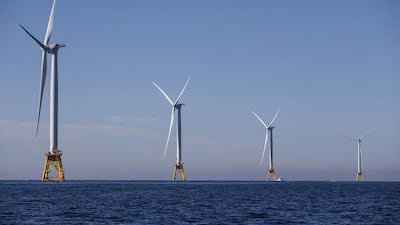Live updates: follow the latest news on Russia-Ukraine
Portugal aims to accelerate its energy transition and increase the proportion of renewable sources by 20 percentage points to 80 per cent of its electricity output by 2026, four years earlier than previously planned, the government said on Friday.
As part of a global shift away from carbon-emitting fossil fuels, countries are betting on renewable energies such as wind and solar, a transition that is being accelerated in Europe after Russia's invasion of Ukraine.
The new Socialist government that was sworn in on Wednesday said, in its overall programme released on Friday, that the energy plans should mobilise more than €25 billion ($27.62bn) of investment in the next 10 years, involving public and private players, incentives and financing.
"Portugal has already taken very significant measures in the energy transition, but the evolution and duration of the war in Ukraine must necessarily imply new measures," Cabinet Minister Mariana Vieira da Silva said.
The country, committed to become carbon-neutral by 2050, currently gets 60 per cent of its electricity from renewable sources — one of the largest proportions of green energy use in Europe.
Unlike central European countries, Portugal does not depend on Russian natural gas pipelines, as it mainly imports liquefied natural gas from Nigeria and the US, and has not imported Russian crude since 2020.
The government also wants to "more than double the installed capacity of renewable sources in the next decade".
Portugal, which closed its two coal-fired power plants last year, has 7.3 gigawatts of hydroelectric capacity and 5.6 gigawatts of onshore wind parks, which together represent 83 per cent of its total installed capacity.

